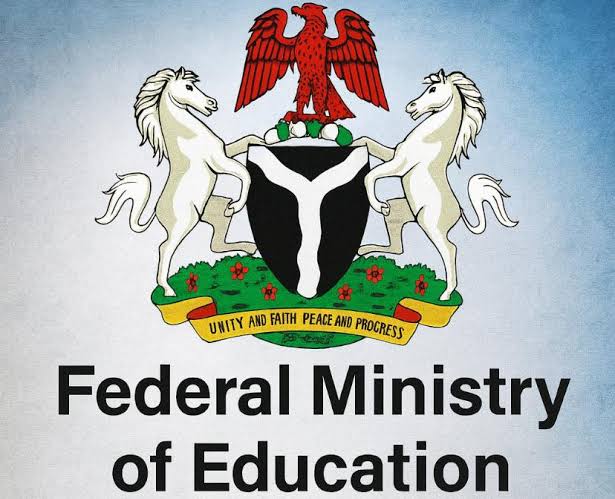
Urgent Need For Guidance And Counselling Units In Public Schools In Nigeria

The trust that students once placed in their school environment as a haven for learning and personal development has been severely undermined by recent waves of banditry attacks, particularly in Kaduna State. What used to be a place for education and socialisation has become a source of trauma, triggering anxiety, loss of trust, and pervasive discomfort among young learners.
Children and adolescents aged six to 19 in public primary and secondary schools across Kaduna invest approximately 48 per cent of their cumulative daytime each week in the school environment, with less than 15 per cent of that time allocated for social breaks.
According to the World Health Organisation (WHO), 50 per cent of mental health disorders manifest by the age of 14, underscoring the urgent need for safe spaces in schools where students spend most of their waking hours.
The developmental needs of these age groups are distinct yet interconnected. For instance, pupils in middle childhood should focus on developing their social identity, self-esteem, moral judgement, and cognitive skills. In contrast, adolescents aged 13 to 19 should be navigating emotional regulation, peer relationships, mental resilience, identity formation, and cognitive refinement.
Unlike previous generations, today’s students face an array of stressors, including an overloaded curriculum, poverty, natural disasters, trauma from insecurity, limited resources, unhealthy media exposure, and excessive screen time. This constant barrage of challenges negatively impacts their developmental progress.
The call for quality mental health support through guidance and counselling units in public schools has never been more pressing. Such units are vital for creating safe environments, where counsellors can help students:
– Develop essential life skills, including communication, problem-solving, self-preservation, relationship building, and conflict resolution.
– Identify early warning signs of mental health issues and explore coping strategies while providing referrals to specialised services when necessary.
– Address individual needs such as learning difficulties, post-traumatic stress from insecurity, and behavioural challenges.
– Choose appropriate subjects, set academic goals, and develop effective study habits.
In Northern Nigeria, particularly in crisis-prone communities, students often grapple with severe challenges. These include issues with trust, social withdrawal, aggression towards peers, increased violence, substance abuse, and diminished self-esteem and confidence.
Intrusive thoughts, memories, and avoidance of triggers, such as school, contribute to rising absenteeism and dropout rates. Mental health challenges like anxiety and depression require processing and support from guidance counsellors, who can offer a confidential space for self-expression. It’s essential to broaden the role of these professionals beyond career guidance to encompass overall well-being, fostering resilient, responsible, and well-rounded individuals who feel comfortable seeking help when needed.
While the Kaduna State Education Policy (2019) and the Nigeria National Policy on Education (2013) outline the establishment of guidance and counselling units in primary, junior, and senior secondary schools, significant barriers remain. These include shortages of qualified counsellors and mental health professionals, stigma surrounding mental health, misconceptions about the role of guidance counsellors, inadequate infrastructure for comprehensive counselling, and poorly trained staff in schools.
To overcome these barriers, both federal and state governments must mobilise support to develop national guidelines for school counselling, including criteria for substituting professionals when necessary. There is also an urgent need to educate community members about mental health illnesses, first aid, and management strategies. A lack of understanding perpetuates stigma and contributes to a knowledge gap among students, school management, and staff, impacting their ability to create supportive environments and engage in help-seeking behaviour. Therefore, community awareness campaigns must be ramped up.
When effectively implemented, guidance and counselling units can significantly enhance the positive impact of school time on community development, providing students with an environment for self-discovery, preservation, and actualisation.
Today and in the future, we must prioritise the urgent need to ensure safe schools for current and future generations. These students are the future of our nation; a mentally healthy community is vital for a thriving society. We must Increase Access to Quality Mental Health Support in Schools Across Kaduna State and nationwide.
Jecinta Egbim, an Nguvu Change Leader, is an Educationist and Mental Health Advocate.
Read More:
- Atiku Calls Tinubu ‘TPain’ Over Fuel Subsidy Crisis
- Despite Being Tough On Protesters, Nigeria’s FG Dismisses Asari Dokubo’s Threat To Bring Down Aircraft
- Nigerian Govt. Demands Arrest of Dana Air MD Over Failure to Appear in Court in N1.3 Billion Fraud Case
About The Author
2 Comments
Leave a Reply Cancel reply
Related Articles
Oxford English Dictionary Adds Nigerian Words Reflecting Global Culture
The Oxford English Dictionary has added a range of Nigerian words and...
ByWest Africa WeeklyJanuary 8, 2026Niger State Approves School Reopening Following Security Review
The Niger State government has approved the reopening of schools across selected...
ByWest Africa WeeklyJanuary 3, 2026Nigeria’s New SS3 Ban Punishes Students for a Broken Education System
The Federal Government has announced a ban on the admission and transfer...
ByWest Africa WeeklyDecember 15, 2025Nigeria Ends Mother-Tongue Instruction, Adopts English-Only Policy in Schools
The Federal Government has formally scrapped the mother-tongue-based teaching policy introduced in...
ByWest Africa WeeklyNovember 14, 2025












Couldn’t have been said any better.
Keep up the good work!
establishing guidance and counselling units in schools is long overdue. the mental health and wellbeing of students need to be prioritised.
brilliant article Jecinta, and well done for shedding light on this.